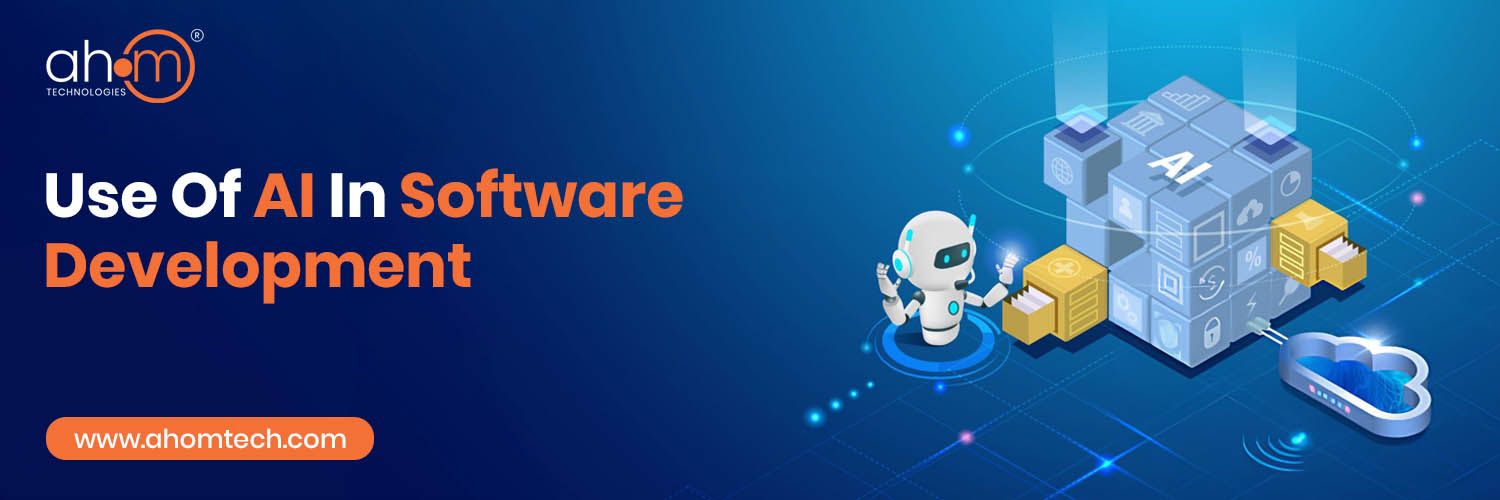Artificial intelligence (AI) has ability to learn, adapt and process massive amounts of data provides benefits that streamline and enhance software development. AI technologies are assisting modern developers in a variety of ways, from improving code quality to accelerating testing and deployment.
- AI Influence on Code Generation and Autocompletion
One of the most important ways AI is assisting software development is through intelligent code generation and autocompletion technologies. Some services, such as GitHub Copilot, Tabnine, and Kite, use AI algorithms trained on large volumes of code to deliver real-time suggestions while developers input code. This makes coding faster and less likely to have syntax or small logical problems.
For instance, GitHub Copilot uses OpenAI’s Codex model to suggest entire code snippets or functions, helping developers complete repetitive coding tasks or unfamiliar segments. This feature enhances productivity and reduces time spent on routine or boilerplate code, allowing developers to focus more on complex tasks that require their expertise.
- Bug Detection and Error Reduction
AI can examine vast codebases to find faults and potential vulnerabilities that humans would overlook. AI-powered bug detection technologies like DeepCode (owned by Snyk), CodeSonar, and even GitHub’s CodeQL are intended to identify key issues such as security flaws, performance bottlenecks, and logical errors.
Machine learning (ML) algorithms are trained on large datasets of previous defects and fixes so it can forecast where future problems may occur. It acts as an early warning system. For example, if a specific function or method has been error prone in previous projects. AI can highlight it and recommend potential issues to developers. This minimizes both the number and severity of code errors and resulting in higher quality software.
- Automation Testing
Testing is an essential component of software development but it can be time consuming and tedious. AI powered testing tools are transforming how developers approach this step. Machine learning powered technologies such as Testim, Functionize and Applitools automatically develop, execute and optimize tests. This leads to better test coverage and a speedier testing procedure.
Automated testing systems driven by AI are especially useful in regression testing, which needs rerunning tests after code changes. These tools can adapt to minor changes and focus on the most likely affected portions of the code, minimizing redundancy and speeding up the overall testing process. As a result developers can discover and address errors earlier in the development cycle.
- Predictive Analytics for Project Management.
AI is also helpful with project management in software development by providing predictive insights. Jira, Monday.com, and ClickUp have started integrating AI capabilities to provide more accurate forecasts of project deadlines, potential delays, and team productivity.
Predictive analytics uses data from prior projects to anticipate how long tasks will take, allowing project managers to better allocate resources. It can also detect potential bottlenecks, allowing teams to address them before they cause delays. This form of foresight is especially useful for project planning and controlling customer expectations, which leads to more efficient development cycles.
- Improved security and threat detection.
Security is a top priority in any software project, and artificial intelligence is helping to improve it. AI algorithms may scan code for known weaknesses and anomalies that could point to a security problem. Cybersecurity tools such as Darktrace and Vectra are increasingly being used in software development to identify and remediate security flaws.
Artificial intelligence powered security technologies analyze code and network traffic patterns to discover odd behavior that could indicate a breach or possible threat. This is especially useful in DevOps environments, where security is incorporated throughout the software development life cycle from code creation to deployment.
- Natural Language Processing (NLP) in Code Documentation
Code documentation is often ignored but it is important for maintainability. Developers frequently struggle to write clear documentation, and this is where natural language processing (NLP) can assist. AI powered NLP tools such as Codex and Document Intelligence, automatically generate or improve documentation by understanding code context and providing relevant descriptions.
This saves developers time while also developing software, more accessible to future teams that may inherit the project. With AI assistance in documentation, development teams may provide a more structured, coherent documentation process, which facilitates cooperation and knowledge sharing.
- Continuous integration and deployment (CI/CD).
AI improves the CI/CD pipeline’s automation and monitoring capabilities. Continuous integration and deployment are key components of modern development, allowing teams to push updates on a regular basis without experiencing substantial downtime. AI powered CI/CD technologies can improve processes by identifying which changes require testing, automating rollbacks for failed updates and managing dependencies.
AI can be used in CI/CD systems to detect code changes and usage, detecting which parts of the system are most impacted by changes. This enables faster and more reliable deployments while reducing the chance of critical systems failing in production.
Conclusion: The Future of AI in Software Development.
AI is rapidly transforming software development by increasing efficiency, dependability, and security. Its applications range from automating tedious tasks like code creation to improving difficult ones like security and deployment. Although artificial intelligence is not a replacement for human developers, it is a powerful tool that can help them create better software more quickly.
The future of artificial intelligence in software development looks optimistic. As AI technologies advance, we may expect more sophisticated tools to assist developers in novel ways, allowing them to push the limits of what is possible in software engineering.


